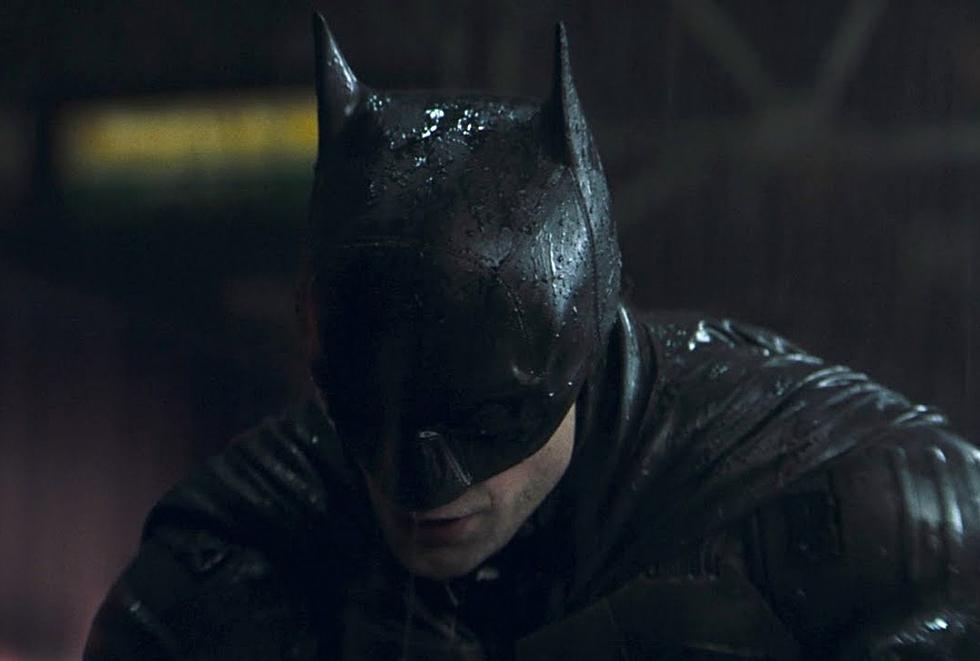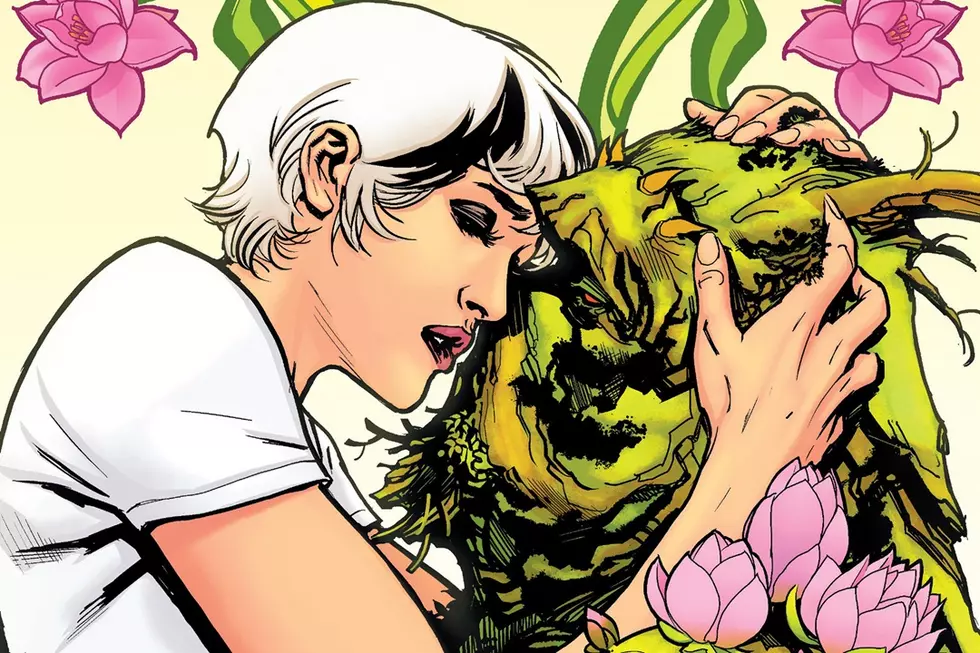
The Five Most Awesome Moments In ‘Suicide Squad: Trial By Fire’
This week, DC released a new paperback collection of the first eight issues of John Ostrander and Luke McDonnell's Suicide Squad, one of the absolute best comics of the 80s. The mix of high action and intense drama that focused on some of DC's more obscure villains not only revitalized characters like Deadshot and Captain Boomerang, it served as a blueprint to the kind of superhero story that DC would focus on for the next three decades. In short, it's great.
But let's be real, here: If you've read ComicsAlliance for any length of time, then you've probably heard us talk about all that stuff before. If that hasn't already convinced you, then what you need, friends, are specifics, which is exactly why I've sat down with my copy to bring you the five best moments of Suicide Squad Vol. 1: Trial By Fire.
THE WAR WHEEL
In addition to the first eight issues, the new collection also includes Secret Origins #14, a prologue story that set up the series after the events of Legends. It's one of the most overlooked pieces of the series, and if you've never read it, it's great. There's war story action that hearkens back to The Dirty Dozen, one of the biggest and most obvious influences on Suicide Squad, but with an amazing look at the trauma that shaped the life of Rick Flag Jr., one of the book's main characters in its first 25 issues. There's stuff in there about sacrifice, about what it means to live your life with the deaths of others hanging over your head and never being able to live up to it.
Of course, it's also a DC Comic set in a universe of superheroes, so you also get stuff like Task Force X fighting against dinosaurs. And you also get... The War Wheel.
I love that thing. It's the biggest, weirdest bit of world-conquering nonsense left over from the Golden Age war comics, and that it's tied in to such a motivating tragedy in a way that manages to be relentlessly goofy and genuinely emotional is one of the best things about the book.
THE FEMALE FURIES ATTACK BELLE REVE
So, remember that Legends book that I mentioned earlier? In case you don't remember it, the gist was that Darkseid sent Glorious Godfrey to Earth in order to turn humanity against the superheroes. To that end, he took the identity of G. Gordon Godfrey - one of the superhero genre's more subtle bits of political commentary — and went on TV to get the job done as a political pundit. Once the good guys won (spoiler warning for a comic that came out in 1988), Godfrey was thrown in prison.
Belle Reve Prison. The same prison that the Suicide Squad operates out of. And when Darkseid decides that he'd rather be the one punishing Godfrey for his failure rather than leaving it up to the Louisiana State Department of Corrections, he sends the Female Furies down to Belle Reve to get him back.
The fight that ensues is a great reminder of where the Squad stands, and the vulnerability that they're working with in every story. These are characters that we've seen defeated time and time again — that's how villains in comics tend to work, after all — and just as they start to get a few wins under their belt, even when those wins come with a hefty amount of sacrifice, literal space gods show up on Earth to remind you just how low in the hierarchy they are.
CAPTAIN BOOMERANG VS. JACULI
Then again, sometimes you need a reminder of just how good the bad guys have to be to provide an actual threat to the heroes they usually fight. For someone whose major skills involve boomerangs and choosing the most fetching scarves to actually hang with a guy who can run at the speed of light, those have to be some pretty impressive boomerang skills. That's something that you forget when you're watching him get trounced and hauled off to prison in eight pages every couple of months.
Which is where Jaculi comes in. The Squad's first villains are a group of super-powered terrorists who, while they might not be Justice League caliber, are still pretty lethal. But when the Squad attacks their mountain fortress, Jotunheim, Captain Boomerang takes on a speedster with similar powers to the Flash, and it becomes very clear that you need a whole lot more than just super-powers to fight super-villains.
THE SLIGHTEST USE OF TIME TRAVEL EVER
You'd think that giving a bunch of hardened super-criminals access to a time machine would end up being a whole lot more trouble than it's worth, but when the Suicide Squad recruits the time-traveling Chronos to help them with a mission, it ends up being what might be the most small-scale use of a time machine in the history of comics.
The target this time around is William Hell, a crossbow-packing masked racist inciting riots while funding a hate group, and the idea is that rather than shoot him and be done with it — Deadshot's expedient suggestion — they'll discredit him. So Deadshot disguises himself as William Hell and challenges the genuine article to a crossbow-off — and just so there's no chance that it could backfire on them, they use Chronos's machine to freeze time so that Bronze Tiger can knock his bolt off just enough to make everything look real. And then they fake his death just to be sure. They're a thorough group, the Squad.
AMANDA WALLER PUNCHES TOLLIVER
As much as the focus is on the villains, the real star of the show in Suicide Squad isn't Deadshot, or Captain Boomerang, or even Rick Flag. It's Amanda Waller, and Ostrander and McDonnell waste no time showing you just how awesome she can be.
The things people usually remember come later in the run, like Waller threatening to find out Batman's identity and making the Dark Knight himself back down from investigating Task Force X, or spending a year in prison just to prove a point, but it's not like they take long to get her to that point. There's no ramp up for Waller, she's like that from day one — and that's something Dexter Tolliver, the Squad's liason to the NSC, finds out firsthand when he sends them on a mission for his own political gain.
It turns out that there's a difference between being expendable and being wasted, and that difference all comes down to what Amanda Waller says it is.
CHECK OUT SOME FACTS YOU MAY NOT KNOW...
HOW TO TELL DEADSHOT APART FROM HIS PEERS
More From ComicsAlliance









